Banking: Expect bigger bounce for HSBC, Lloyds and Santander
Central Banks, the banks for the banks, have been in the news yet again. The European Central Bank (ECB), the equivalent of the Bank of England for the entire Eurozone, surprised the financial markets on 10 March.
They unveiled a more comprehensive package of measures to boost the Eurozone economy than had been expected.
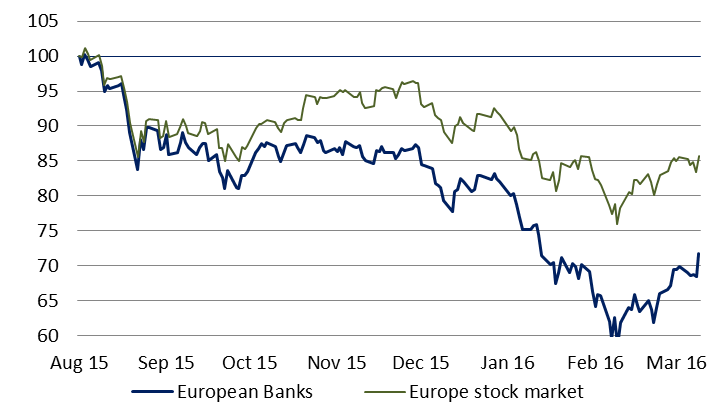
One key element of the ECB's expanded "quantitative easing" measures includes buying even more government bonds every month, as much as €80 billion per month versus €60 billion of bonds per month up to now.
ECB President Draghi and his colleagues have also decided to give a lending hand to the region's banks, by allowing them to borrow money at an interest rate as low as -0.4%. This means that some banks may even be paid by the ECB to borrow money.
The ECB's actions have had the effect of improving confidence in the region's banks, which had fallen 40% from August last year to February this year. Share prices in the European banking sector have suffered far more than the overall stock market over the last 7 months, falling 28%, twice as much as the European stock market over the same period (Chart 1).
Eurozone banks catch up with British peers
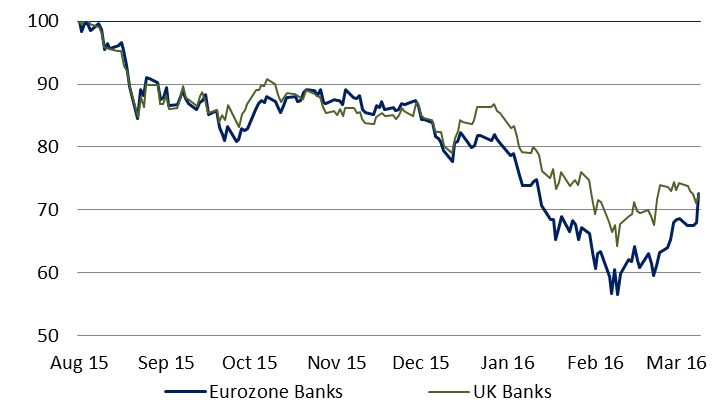
This latest help from the ECB has driven a sharp rebound in Eurozone banks, to the extent that the sector has now rebounded over the past month considerably more than their UK peers (Chart 2).
The share prices of UK banks remain on average nearly 30% below what they started back in August last year. RBS, Barclays and Standard Chartered have suffered the most over the period, falling between 32% and 50% (Chart 3).
If you want income from Banks, focus on Lloyds, HSBC and Santander
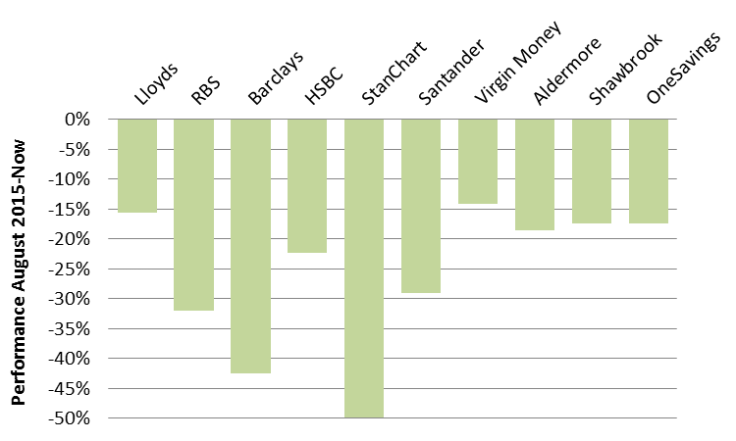
UK banks have seen profits suffer from a number of sources in recent years, including fines and compensation paid for mis-selling PPI (Payment Protection Insurance) policies in the past.
Overall, PPI has cost UK banks around £32bn in fines and compensation, and that is unlikely to be the end of the matter. Claimants have until 2018 to lodge PPI claims, which means there is still nearly two years left before banks can finally put this sorry PPI saga behind them.
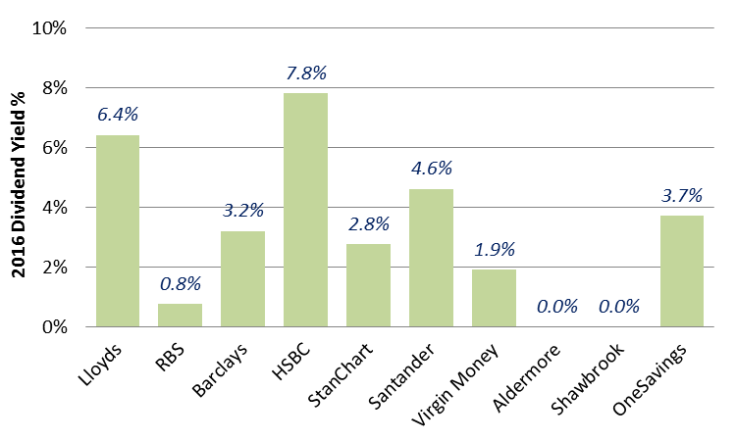
One of the results of these misdemeanours is that many UK banks have made lower profits, hence forced to reduce dividends to investors. Barclays, as an example, will pay a lower dividend this year (5.16p per share) than they paid back in 2012 (6.5p).
Of the ten UK banks listed on the London Stock Exchange, three do not pay any dividend while only three of the 10 offer a dividend yield above 4% (Chart 4).
If you want a high level of annual income from a bank, then you had better concentrate on the three top dividend payers: HSBC, Lloyds and Santander.
Lloyds showing solid earnings, dividend growth
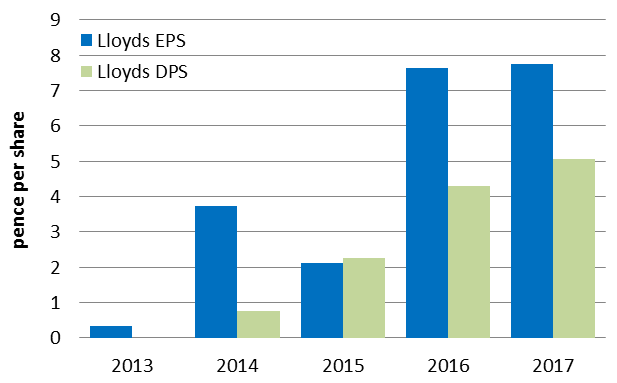
The UK banks that has demonstrated the strongest rebound in profits over the last three years is Lloyds Bank (code: LLOY).
Back in 2013, Lloyds made a profit after tax of just 0.33 pence per share. This year, this profit per share should rise to 7.6p, 2,200% higher.
Lloyds' annual dividend has followed suit, rising from a zero dividend in 2013 to an expected 4.3 pence per share to be paid this year (Chart 5).
What to do: Buy Lloyds or Buy a European Banks sector Exchange-Traded Fund
Investors who want to buy into the European banking recovery can either:
- Buy shares in Lloyds Bank (current share price 70 pence per share) to benefit from the growth in profits and dividends, or
- Buy shares in the db x-trackers STOXX Europe 600 Banks UCITS ETF, an exchange-traded fund which holds shares in the major European banks and is priced at 2683 pence per share. The largest holdings in this fund are the banks: HSBC, Lloyds, Santander, UBS and BNP Paribas.
© Copyright IBTimes 2025. All rights reserved.



















